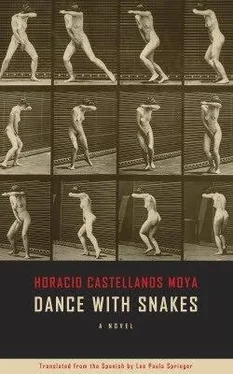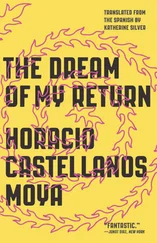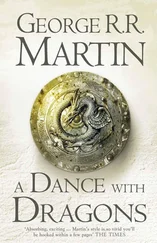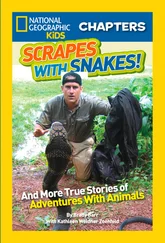Horacio Castellanos Moya
Dance With Snakes
The old man scratched his chin. Snakes are like people, he said. You have to get to know them. Then you can be their friends.
Allal hesitated before he asked: Do you ever let them out?
— Paul Bowles: “Allal”
None of the tenants could say exactly when the yellow Chevrolet had first parked in front of the building. There were too many cars that spent the night on that street, a double row that ran the length of the housing project’s four blocks. But the yellow Chevrolet attracted attention for a number of reasons. It was a heap that looked at least thirty years old, with a smashed-up body and windows boarded up with pieces of cardboard. It looked like an old wreck that a neighbour wouldn’t take to the scrapyard for sentimental reasons.
The first to notice that there was something strange about the car were the housewives and maids who went out in the mornings to go shopping or just to gossip. At that time, a ragged man with grey hair and a beard would emerge from the Chevrolet, looking like someone who’d just woken up after spending the night in his wreck.
Niña Beatriz, who ran the store, made it her business to keep tabs on this strange person and to tell the neighbours about his activities. It was through her that we learned of his daily routine. He’d leave the car at ten in the morning, wander off to some unknown part of the city and somewhere between eight and ten at night, he’d come back carrying a canvas bag full of trash and shut himself up in the car until the next day.
I was the ideal neighbour to snoop on this individual. Unemployed and without any real hope of finding a decent job in these new and troubled times, I was living in the apartment of my younger sister Adriana and her husband Damián. Every month, as a symbolic gesture, I gave them some of the money sent to me from the United States by my older sister Manuela, the one who’d raised me, the one who loved me the most. My situation was very difficult — my degree in sociology (a major no longer offered by most universities) wasn’t helping me find a job, as there were too many teachers around, companies didn’t need sociologists, and a career in politics — the only other field in which I could have applied my knowledge — was a profession alien to my abilities.
I spent most of my time in the apartment, watching television and reading the newspaper. (I still hoped that one day, I’d find the classified ad that would change the course of my life.) I also helped Adriana run errands and, once in a while, when the opportunity presented itself, I would go see one of those solemn types who, after looking at my résumé, would ask me to give them a call — a call that was never answered.
I first met the man in the yellow Chevrolet on my way to the store for some cigarettes. He was getting out of the car, holding his canvas bag. He wore jeans that had once been blue, grubby running shoes laced up with string, and a tattered T-shirt. His belt looked like a snake. I politely said hello. He didn’t answer. Instead, he shut the car door and limped down the street, sullen and reeking of alcohol and urine.
“He’s a disgusting drunk,” said Niña Beatriz, a plump older woman with a sharp tongue, while she looked for a pack of cigarettes. “He doesn’t talk to anyone. Who knows how he ended up here. We should do something to get rid of him.”
I talked about him with my sister and brother-in-law at dinner. He didn’t look like an ordinary beggar, but seemed to have once been a middle class sort of person. I thought the Chevrolet might really belong to him. My brother-in-law had never seen him, but he had seen the car and wondered whether it still worked.
“He got here somehow,” Adriana said, “it’s been here less than two weeks.” When I told them about the snake around his waist, I was met with their usual unbelieving stares.
A few days later I ran into him again, this time at night, when he was coming back to the car with his canvas bag loaded with what I assumed was trash. I caught up to him, said, “Good evening,” and started to walk beside him. “I’m Eduardo Sosa, your neighbour,” I said. He didn’t turn around to look at me, but kept walking, as though I’d never spoken to him, as though I weren’t even standing next to him. I continued: “Living in a car must be pretty uncomfortable.” He gave off the same rancid stink and he was moving his lips, muttering to himself. I kept walking beside him. I’d already had a coffee, there wasn’t a movie worth watching on TV that night, and he’d piqued my curiosity. He wasn’t wearing the snakebelt. “The neighbours are complaining about you. They’re going to call the authorities to come and take you away.”
He was less than sociable. He looked at me with contempt and blurted, “What’s it to you? Why are you sticking your nose in? Go away. Leave me alone.”
We got to the yellow Chevrolet. He rummaged through his bags, took out a key and before opening the door, angrily turned to face me. Through clenched, filthy teeth he asked, “What do you want?”
“To see what’s inside that car,” I said without hesitation. Bewildered, and almost fearful, he turned his back to me, opened the Chevrolet’s door and quickly got inside. I couldn’t make out a thing. I knocked on the side windows and the windshield, but sheltered behind the cardboard, he didn’t answer. I went to the store.
“We’ve got to call the authorities to come and get rid of that filth,” I told Niña Beatriz. She agreed. “Why don’t you call the police and get them to send somebody,” I suggested. She looked doubtful. I warned her that having someone like that parked in front of her store was bad for business. We should act right away. Otherwise, he’d never leave.
The police car arrived about ten minutes later.
“This Chevrolet has been parked here for about two weeks,” said Niña Beatriz. “And a suspicious-looking man is sleeping inside.”
“So what’s the problem?” asked the police officer, who’d said his name was Dolores Cuéllar.
“What do you mean, what’s the problem?” she cried. “We don’t know if the car is stolen. The guy is living on the street. And he’s a beggar. Understand?”
Two neighbours who had just come into the store agreed with Niña Beatriz. I stayed discreetly in the background. Officer Cuéllar seemed to understand. He walked up to the Chevrolet, knocked on the driver’s side window, identified himself as a police officer and demanded that he open the door. There was no answer from inside. By now, half a dozen onlookers surrounded the car.
“He’s there. He just got in. This man’s a witness,” said Niña Beatriz, pointing at me. The officer tried again, this time harder, as though his next step would be to smash the window.
The man stepped out of the car. But instead of being intimidated by the sight of so many people, especially a policeman, he was aggressive, like a caged animal. He said his name was Jacinto Bustillo, that the car belonged to him and, as proof, he showed the officer his car’s registration papers. He said he didn’t understand why we were bothering him. Parking on the street wasn’t illegal.
“Parking here isn’t, but you’re living in there,” Niña Beatriz said, pointing at the car. “And that isn’t normal. It’s against the law and decent people don’t do it. You can’t live in the road.”
“Why not?” he asked defiantly. “There’s no law that says I can’t live in my car. Do you know of any law that says I can’t be here?” he asked a surprised Officer Cuéllar.
“Well, honestly, no, I don’t,” stammered the policeman.
Читать дальше












